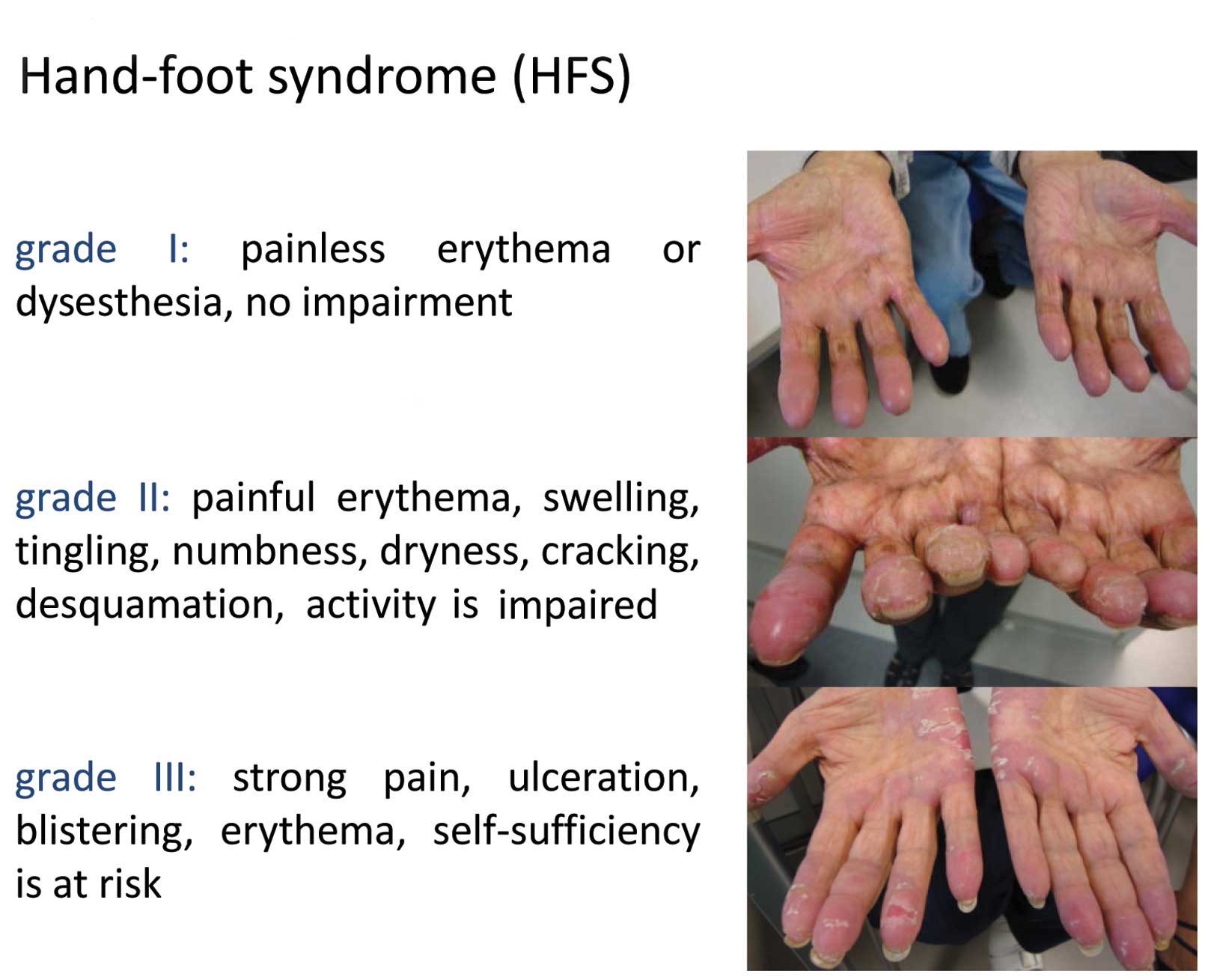Spandidos Publications style
Wehler TC, Cao Y, Galle PR, Theobald M, Moehler M and Schimanski CC: Combination therapies with oxaliplatin and oral capecitabine or intravenous 5-FU show similar toxicity profiles in gastrointestinal carcinoma patients if hand-food syndrome prophylaxis is performed continuously. Oncol Lett 3: 1191-1194, 2012.
APA
Wehler, T.C., Cao, Y., Galle, P.R., Theobald, M., Moehler, M., & Schimanski, C.C. (2012). Combination therapies with oxaliplatin and oral capecitabine or intravenous 5-FU show similar toxicity profiles in gastrointestinal carcinoma patients if hand-food syndrome prophylaxis is performed continuously. Oncology Letters, 3, 1191-1194. https://doi.org/10.3892/ol.2012.640
MLA
Wehler, T. C., Cao, Y., Galle, P. R., Theobald, M., Moehler, M., Schimanski, C. C."Combination therapies with oxaliplatin and oral capecitabine or intravenous 5-FU show similar toxicity profiles in gastrointestinal carcinoma patients if hand-food syndrome prophylaxis is performed continuously". Oncology Letters 3.6 (2012): 1191-1194.
Chicago
Wehler, T. C., Cao, Y., Galle, P. R., Theobald, M., Moehler, M., Schimanski, C. C."Combination therapies with oxaliplatin and oral capecitabine or intravenous 5-FU show similar toxicity profiles in gastrointestinal carcinoma patients if hand-food syndrome prophylaxis is performed continuously". Oncology Letters 3, no. 6 (2012): 1191-1194. https://doi.org/10.3892/ol.2012.640















